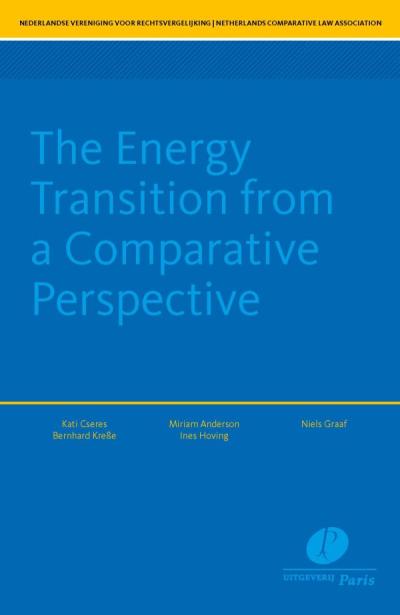The transition towards sustainable sources of energy requires the law to facilitate and regulate societal and technological transformations, in all kinds of arrangements concerning energy, from production, transport, and trade to distribution and consumption. As this transition, by its nature, is a universal topic and crosses boundaries of jurisdictions, comparative law is eminently appropriate to rethink analytically and synthetically how local, national, supra- and international law can facilitate the transition. Hence, the Netherlands Association of Comparative Law organized its annual symposium of 2023 around this topical theme. This book captures the contributions by the speakers at this symposium who discussed these and related issues from a comparative legal perspective.
Preface
The Energy Transition from a Comparative Perspective – An Introduction
Varieties of Energy Transition: A Consumer-focused Perspective – Kati Cseres
1 Introduction: the energy transition and the role of consumers
2 EU law
3 Varieties of local capitalism
4 Netherlands
5 Hungarian energy law and governance in light of the Hungarian variety of capitalism
6 Conclusions
Sustainability Issues in the Supply and Value Chain under German Law – Bernhard Kreße
1 Introduction
2 Climate lawsuits
3 Developments in German and European legislation
The Renovation Wave of Buildings: Spanish and Catalan Private Law Perspectives – Miriam Anderson
1 Introduction
2 The Renovation Wave of Buildings and its context
3 Minimum energy performance standards (MEPS)
4 The landlord-tenant split incentive
5 Simple majorities for the renovation of multi-unit buildings
6 Financing renovation and green mortgages
7 Leaving no one behind: subsidies, vulnerable sectors and the renaissance of medieval land charges
8 Concluding remarks
References
Solar Panels-on-roof Constructions as ‘Scheinbestandteile’ – Ines Hoving
1 Solar panels-on-roof constructions
2 Unity principle in Dutch law
3 Scheinbestandteile in German law
4 Solar panels-on-roof constructions as Scheinbestandteile
5 Comparison with the unitary principle in Dutch law
6 Conclusion
References
Winners and Losers of the EU’s New State Aid Regime.
Comparing National Funding for the Energy Transition – Niels Graaf
Introduction
1 The EU’s State Aid regime
2 EU State Aid law as a crisis solver
3 The State Aid Temporary Crisis Framework
4 The case of the IPCEI-Hydrogen exception
5 Winners and losers of the exceptions to the EU’s ban on State Aid
6 Concluding remarks
Symposium on the Energy Transition: a Short Report – Mark van der Kooi
Geschriften van de Nederlandse Vereniging voor Rechtsvergelijking


